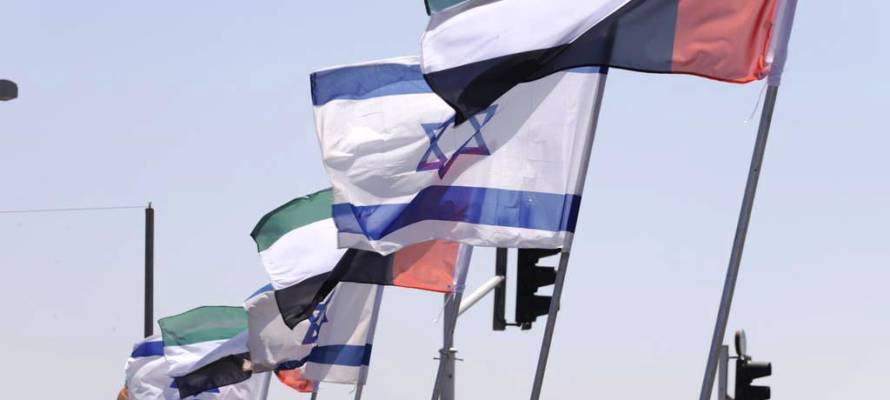Jerusalem Deputy Mayor Hassan-Nahoum, who initiated the project, said the Council is working to promote a series of construction projects, including the establishment of “Silicon Wadi.”
By Baruch Yedid, TPS
The United Arab Emirates-Israel Business Council (UIBC) of Israeli and UAE businessmen was recently established following the initiative of Deputy Mayor of Jerusalem, Fleur Hassan-Nahoum, and her partner in the Emirates, Thani al-Shirawi.
Hassan-Nahoum, dubbed by some as the city’s foreign minister, is entrusted with the Jerusalem’s foreign relations.
The council works to promote deals in the fields of science, technology, medicine, high tech, and agriculture, and consists of more than 50 businessmen in Israel and the UAE, many of whom recently participated in a conference through Zoom on August 18.
“We connect between Israel’s dynamic technology and innovation ecosystem and the UAE’s unique strengths in finance, trade, and logistics. Together, we can build a brighter future for the entire region,” the UIBC says.
In an interview with TPS, Hassan-Nahoum said that the council is working to promote a series of projects, including the establishment of “Silicon Wadi” in eastern Jerusalem.
These initiatives, she says, are projects that the Jerusalem municipality has sought to promote in recent years but were disrupted by Arab and Palestinian elements for political reasons.
“Now,” she says, “we have the opportunity to implement the plans for the benefits of the residents of eastern Jerusalem and the city as a whole.”
Al-Shirawi, the Emirati head of the council, told TPS that the forum is of great economic and political importance and has great potential for improving life in eastern Jerusalem.
The forum will work to promote tourism projects to Jerusalem, including religious tourism.
“We hope that the city’s residents will welcome tourists from the Emirates, despite opposition from the Palestinian leadership. We live here [in the UAE] with Palestinians and understand the gap between the street and its leadership,” he said.
“This is nothing more [important] than the normalization of the relationship, and better late than never,” said Shirawi.
“We view Palestinians and Jordanians and Israelis as our brothers and hope that the economic initiatives will sweep everyone,” he added.
Recently, Jerusalem Mayor Moshe Lion received a series of proposals from sources in the Emirates for investments in projects, including in the fields of construction in the east of the city. The municipality intends to establish the Emirates embassy in Jerusalem, in an attempt to attract entrepreneurs and investors from the UAE to the city.
“We intend to ask the Emirates to establish their embassy here in Jerusalem,” Lion said recently, “and we look forward to the arrival of UAE officials and residents to the city.”
Countering Turkey’s Influence
TPS has learned that officials in Israel believe that UAE economic investments in eastern Jerusalem will push out Turkey, which has been operating in the east of the city in recent years, promoting a long list of projects, and supports mainly Muslim Brotherhood-affiliated organizations.
The United States is also behind the effort to promote economic cooperation between Israel and the Emirates in eastern Jerusalem.
TPS has also learned that several months ago, before the UAE-Israel peace agreement was announced, officials from the Jerusalem municipality began a series of contacts with representatives of the Emirates through a third Arab source, an associate of Crown Prince of the Emirate of Abu Dhabi Sheikh Mohammed bin Zayed Al Nahyan, to examine the promotion of investments in the east of the city, including housing and education institutions – not through the municipality but in collaboration with local authorities.
A spokesman for the Jerusalem municipality said that they knew nothing about these meetings.
